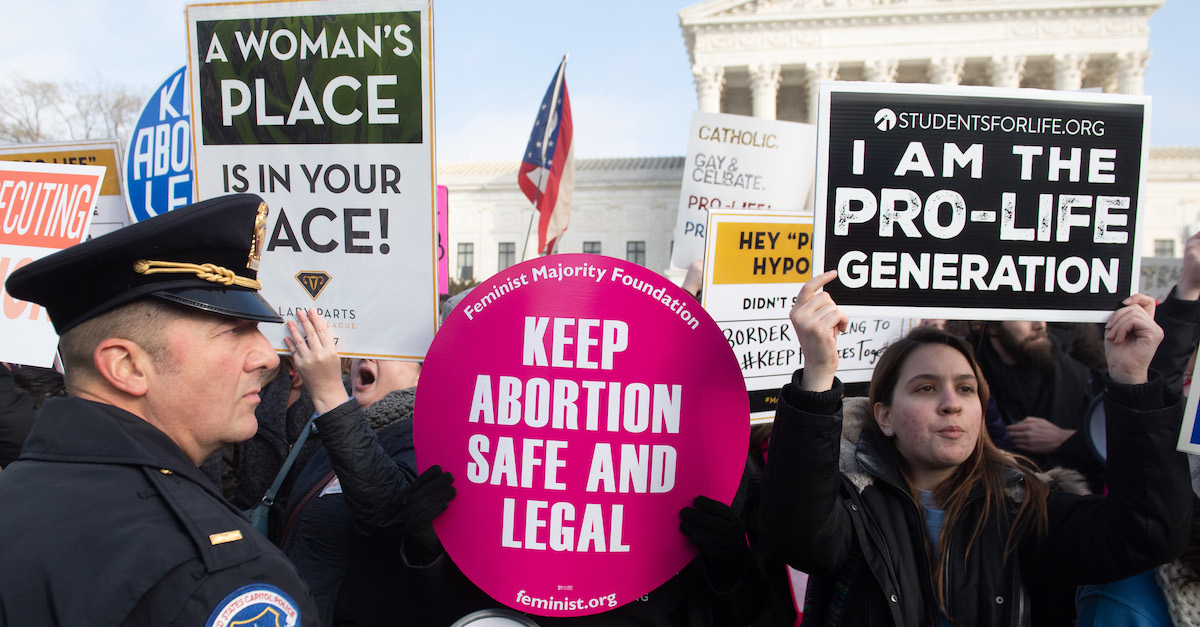
A coalition representing over “60,000 physicians and the department chairs of obstetrics and gynecology at nearly 150 universities” throughout the United States filed a brief with the U.S. Supreme Court on Tuesday in opposition to a Trump administration rule that bars access to abortion drug RU-486 (mifepristone).
“Acting to protect their patients and themselves from COVID-19, which has infected more than six million people in the United States and killed nearly 200,000, [the abortion rights coalition] sought time-limited relief from a U.S. Food and Drug Administration (FDA) requirement that makes unnecessary COVID-19 risk a condition of obtaining or prescribing mifepristone, a safe and effective medication used to end an early pregnancy,” the petition said.
The plaintiffs originally sued to temporarily invalidate an FDA rule that requires patients in need of mifepristone to pick their prescription up at a physical location dedicated to medicine–like a doctor’s office or hospital–and sign a form. Such treatment of the drug, however, runs counter to generalized FDA guidance seeking to limit in-person clinical visits amid the pandemic.
Critics argue that the abortion pill is clearly being singled out.
Per the coalition’s filing [emphasis in original]:
Recognizing the importance of avoiding travel and interpersonal contact during the (COVID-19 Public Health Emergency (PHE)], [the FDA has] taken “extraordinary actions” to reduce viral transmission by suspending in-person requirements for drugs, including potentially lethal controlled substances like opioids, and urging the use of telemedicine “whenever possible.” However, when it comes to medication abortion, the FDA forces patients to travel to a hospital, clinic, or medical office just to pick up the medication and sign a form—even though the agency does not require any in-person examination, any in-person counseling, or that the patient swallow the pill while in the office. Of more than 20,000 FDA-approved drugs, mifepristone is the only one that patients must pick up in person in a clinical setting but are permitted to self-administer elsewhere, unsupervised.
“[The FDA] impose[s] this requirement on mifepristone—for which serious complications are, in the FDA’s words, ‘exceedingly rare’—but not on virtually any other drugs, including highly addictive and potentially lethal opioids like fentanyl,” the filing continued.
Originally filed in July, the coalition of doctors and academic gynecologists successfully convinced the U.S. District Court for the District of Maryland to stop the FDA from enforcing their disparate treatment of mifepristone during the pandemic.
The trial judge found that the plaintiffs were likely to win on the merits of their claim that requiring “unnecessary in-person visits” to obtain the drug during the public health crisis imposes an “undue burden” on the constitutional right to an abortion and that the FDA’s treatment of mifepristone was therefore unconstitutional.
The district court also found that “absent an injunction,” the medical professional plaintiffs and their patients–who are primarily low-income people of color–would suffer irreparable harm.
In late August, the Trump administration filed an emergency petition with Chief Justice John Roberts requesting a stay of the district court’s order while the lawsuit makes its way through the court system. Winning victories on the high court’s “shadow docket” has been a mainstay of the Trump administration’s overall legal strategy.
Buoyed by the Supreme Court’s conservative majority, White House lawyers have effectively lifted numerous lower court orders issued against administrative agencies’ policies–in the majority of instances they have sought such interference.
The professors and physicians representing thousands of patients who need access to the drug are aiming to ensure that the Trump administration doesn’t win another easy victory vis-à-vis a state of otherwise avoidable legal limbo imposed by the Roberts court.
Those consequences are framed in stark relief due to the time-limited nature of the pandemic and the often years-long process of guiding litigation through America’s clunky court system.
“[T]his court should be especially reluctant to interfere where, as here, granting a stay would likely amount to a final resolution,” the doctors argue. “[The FDA has] not even sought an expedited appeal in the Fourth Circuit, which would afford them relief if the court of appeals reverses. But if this court grants a stay, for all practical purposes the case may be finally resolved in [the FDA’s] favor—without [the FDA] ever having prevailed on the merits.”
Read the full reply brief below:
FDA v. ACOG Action by Law&Crime on Scribd
[image via Image SAUL LOEB/AFP/Getty Images]